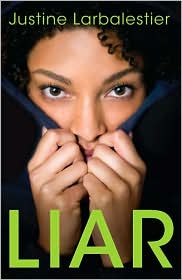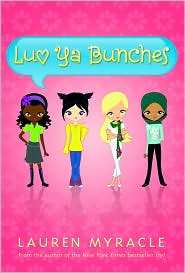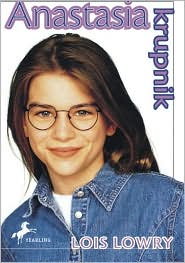The moral of this story? Canadian parents, if you want your kid to be a hockey superstar, time his conception wisely.
Okay, I'm just kidding for that. NO, WAIT, DON'T GO, I'M SORRY, IT GETS BETTER. It's pretty intense stuff to think about, that so much of our success may be out of our control. However, Gladwell also describes the "10,000-hour" rule: basically, that masters and experts in ANY and ALL fields have only accomplished their success after 10,000 hours of practice. Do you know how much time 10,000 hours is? A heck of a lot of time. Bill Gates skipped gym classes and stayed up all night fiddling with computers for years to achieve 10,000 hours of computer practice by the time he dropped out of Harvard to become a multibillionaire.
The moral of Bill Gates' story? WHAT THE HECK AM I STILL DOING IN SCHOOL WHEN I COULD BE OFF WRITING 24/7 AND GETTING 10,000 HOURS OF WRITING PRACTICE?
(Okay, kidding. Kidding. Toooootallyyyy kidding. Pretend I didn't say that, or else my professors will think they're wasting their time on me, and my family will think they're wasting their money. Teehee. I luff you!)
The gist of it is, 10,000 hours is about the unconsciously universal threshold for mastery in anything. Gladwell's findings indicate that there is a marked difference in the success of violinists who've practiced 10,000 hours and violinists who've practiced only 8,000, or 6,000. Constant and dedicated immersion in one's passion or interest is a crucial factor to success.
Which brings me to blogging and writing. This year has been a year of almost explosive growth in my reading and writing habits. A few days ago I crossed the 200-book mark in number of books I've read in 2009. I've taken two writing workshop classes at school, started and finished writing a novel, and started another one. I don't even want to know how many hours I've spent on book-related websites such as Twitter, Goodreads, LibraryThing, and blogs, because that will just make me feel kind of sad at how much time I could've spent reading or writing.
All of this is PRACTICE for my dreams of becoming a published author. Reading all those books? That's research. I've gotten a better sense of what writing styles I like to read, and what works for others, and what I can write, and what I'd like to write. I've read enough this year and in past years to develop a sense of plotlines and story ideas that I feel have been overused to the point where I either want to stay away from them for my life's sake or am determined to rework them and reach the core of what they used to be about. (Read: vampires. And a slight explanation for what I'm doing with my NaNo...)
I know now that I want to never ever ever write a predictable teen romance: "plain girl falls for Abercrombie-model-hot totally-good/too-bad-to-be-true boy on first sight," or "plain girl's long-time unattainable Abercrombie-model-hot totally-good/too-bad-to-be-true crush suddenly notices her when she gets a makeover, or, you know, zombies attack their hometown." Ack. And I know that I want to keep readers alert; to immerse them in a gradual yet heart-wrenchingly unforgettable romance; to push the limits of YA lit conventions. I want to write minority characters and make them accessible to all kinds of readers, like Justine Larbalestier. I promote discourse and perhaps court controversy with sadly taboo real-life subjects, like what Lauren Myracle and Lois Lowry do. I want to reject mediocrity and conventionality.
Composing blog posts, commenting on others' blogs, and even thinking of ways to say things in less than 140 characters--that's me developing my conversational and narrative writing skills. How does one incorporate tone, irony, or subtext in 140 characters? I'd like to think I attempted to figure that out. My fiction writing has changed over this year, too. Earlier this year I wrote some pretty awful, plotless, character-montage short stories for my workshop last spring. Now, I'm aware of the importance of having a story in your story. Before this summer, I was terrified of writing shitty first drafts, and thus rarely finished writing something if I felt it got too bad or boring. Now, I know that Anne Lamott (Bird by Bird) was right: 99% of the time, first drafts are AWFUL. Probably more than half of my first drafts won't make it into my revised second drafts, and now I know that and look forward to tearing apart my first drafts and rewriting large sections.
I've also learned the zillions of things that I want to work on in the years to come. I'm atrocious at writing families. Research kills the spirit in me. Writing three-dimensional siblings? Fugghedaboudit. I let my characters tell us what they're thinking too often, instead of letting them show their thought process in actions. And, oh yeah, I still need to figure out how to write that "THAT'S IT" first sentence in query letters, instead of writing summaries that sound suspiciously like book proposals or book jacket descriptions. I keep lists of the questions I have for my stories, myself, and my writing, and I look forward to when I'll be able to answer them. Through practice. Always through practice.
 So yes, I have been clocking some serious practice hours for writing this year. And the best part? It's all been so enjoyable, so effortless. I love all the new friends I've made through blogging and Twitter. I love going to bookish events and actually be able to connect to people there. And, yes, I even very secretly and guiltily like being the children's and YA lit "semi-expert" in my Children's Lit class at Penn. (And if you, Phil, are reading this, I hope you don't take it in a bad way!) I like striking up conversations with the bookstore employees who ring up my purchases for me, and recommending that they read such-and-such a book if they like this-and-that.
So yes, I have been clocking some serious practice hours for writing this year. And the best part? It's all been so enjoyable, so effortless. I love all the new friends I've made through blogging and Twitter. I love going to bookish events and actually be able to connect to people there. And, yes, I even very secretly and guiltily like being the children's and YA lit "semi-expert" in my Children's Lit class at Penn. (And if you, Phil, are reading this, I hope you don't take it in a bad way!) I like striking up conversations with the bookstore employees who ring up my purchases for me, and recommending that they read such-and-such a book if they like this-and-that.Fellow aspiring authors (and book lovers who don't want to be authors, or writers who are already published), I hope you don't lose heart, especially if you're doing NaNo. Consider the blogging community experience as research and practice towards whatever dreams you have. I know you're all passionate about books: you wouldn't be flittering through the blogosphere or reading this now absurdly long blog post if you aren't. Whatever you read and write counts towards your 10,000 hours. Think of it that way, and it'll be a lot easier to reach mastery in whatever you desire. :)








Lovely post--you made a ton of good points that I agree with wholeheartedly. And I think that reading definitely should account for a significant portion of the 10,000 hours you need to become a good writer--it really is that important to cultivating your voice, style, sense of pacing--everything. I'm in the "you-learn-writing-from-reading" camp.
ReplyDeleteSince I've been reading more, I've also been noticing a lot of overused cliches and trends in YA that I'm aware of and now know to avoid at all costs when I'm writing.
Blogging is really helping me with writing as well, and for that I'm thankful.
Awesome post :) Good luck on your Nano novel!
This was a beautiful and elegantly written post. And very inspiring. :)
ReplyDeletePart of the reason I decided to start my own blog is because I love reading and writing so much that I wanted to combine the two. Even though I have only been blogging a couple of months, I simply love it. It is another home for me.
Thank you. And good luck with your novels!
I SO agree!
ReplyDeleteI was just thinking about this very topic today. Blogging keeps me in practice with writing--if I don't blog often, I don't write often, either. It's like a warm-up.
To say nothing of the networking, advice, and information I've gotten from reading other blogs--including this one!
Wonderful, thoughtful post. I've thought a couple of these very things, recently, or had them pointed out to me. Good luck - I'm sure you'll become an amazing (and UN-cliche) published author one of these days!
ReplyDeleteYou are taking a children's lit class at Penn? So cool!
ReplyDeleteThe moral of this story? Canadian parents, if you want your kid to be a hockey superstar, time his conception wisely.
ReplyDeleteLOLOLOLOLOL. I'll be sure to mention this to the Canadian hockey fans around me.
I was about to start reading Malcolm Gladwell's book soon, so it's interesting to read your perspective on it.
ReplyDeleteFantastic post. Thanks so much for sharing. I would add 'Canadian parents if you want your kid to be a hockey superstar he already is since he was born in Canada' haha jk :)
ReplyDeleteI think I'm one of the few teenager book bloggers who has no desire to be an author but I love reading other bloggers writing efforts and cheering them on. You guys are awesome and I envy you for knowing what you want (to be anu author), how to get there (read, write, blog!), and you have a talent for writing :)
I still need to figure out what is worth 10,000 hours of my time (besides reading!)
Steph,
ReplyDeleteThis is the kind of post that inspires me. Know you have anxious fans waiting for your first book.
Ditto, Steph. The book blogging community is such an inspiring one in which to write. All this posting definitely helps develop skills, as well as writing fiction does. I didn't realise how much of a crutch Word's thesaurus was for me until I started using Blogger, which doesn't have a thesaurus! I had to remind myself that I could think of the words myself! There's many other things, too, that have improved my writing this year--and the quality of the books I read.
ReplyDeleteBlogging is so much fun. Should have found it earlier!
Good luck with NaNo. Hope everything's going well!
(I just borrowed Bird by Bird from the library. Can't wait to read it.)
This post was first disheartening and then inspiring to me. At first I thought, "10,000 hours? I'll never make that!" And then I realized I've been writing almost every day--blogging, journaling, or freeform stream-of-consciousness writing--since I was a preteen, so I cheered up. :)
ReplyDeleteI've never had a question about what I wanted to be when I grew up; since the time I could read, it was always "writer." I too often find myself frustrated by work and school, because they leave me with less time and energy to focus on my real passion, writing. (And, of course, reading.) I also suffer from first-draft-fear, but the knowledge that first drafts are crap is a comfort.
The 10,000 hours thing reminded me of when Peter Hedges, author/screenwriter, spoke at one of my college's graduation ceremonies. He had always wanted to be an actor, and found himself becoming more and more miserable because he wasn't very good at it. He asked his mentor how long it took to become a good actor, and his mentor said to be good at anything took 20 years. To cheer himself up about being a bad actor, he wrote a play for an actor friend, and discovered he actually liked writing. He's been writing for over 25 years now.
10,000 hours is a small price to pay to be exquisite and expert!
ReplyDeleteI think your blog continues to get better with every post (as do most blogs!).
Fabulous post though, I liked that you opened with a short discussion of Outliers. I hope you accomplish all your dreams of writing, please do tweet me a link when you do begin to sell your book! :-D
This is one of the best, most inspiring posts I've ever read. You know, I never looked at my blog posts in that way before. All the time I spend on my reviews DOES contribute to my writing skills as an aspiring author. :D Thanks for opening my eyes to this!
ReplyDeleteI really want to read Bird by bird. (augh, yet another book to request from the library!)
10,000 hours of practice? Yikes! *looks at her violin case* I guess I won't be a master violinist anytime soon. xD